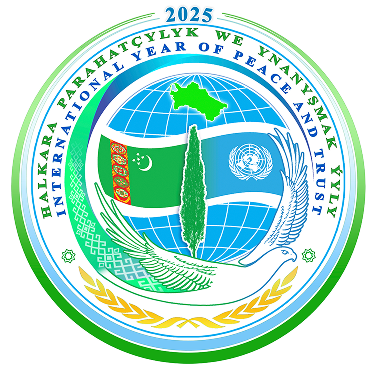MASTER’S DEGREE PROGRAMME AT THE ACADEMY OF CIVIL SERVICE

Within the framework of the EU funded project “Support for Public Administration Capacity Building in Turkmenistan” a webinar on the Master’s Degree Programme in Public Administration (MPA) took place in the Academy of Civil Service under the President of Turkmenistan.
The training, which was attended by the teaching staff of the Academy of Civil Service, was dedicated to the key aspects of the effective organization of the Master’s Degree educational process.
In frames of his presentation, Dr. Klaus Erdmann, Professor of the Federal University of Applied Administrative Sciences (Bruhl, Germany) told about the experience of a number of higher academic schools in Europe in this area.
According to the international expert noted, the Master's Programme is the process of mastering curriculum with the aim to develop professional and personal qualities and competence in the chosen field of activity. It is characterized by the flexibility of the educational model, which is reflected in a prompt response to community demand.
During case studies, the expert from Germany presented the data from the labor market analysis, which demonstrate that scientific and technological progress requires the modernization of the training system.
The Master's Programme provides students with the opportunity to become competitive professionals. Researchers identify several conditional modules for the implementation of master's programmes aimed at obtaining a complex "educational product".
In this regard, two models of the programmes were presented, which are used by leading academic, research centers and institutes in most of the countries of Europe, the CIS and Southeast Asia.
The traditional model is based on a unified educational programme that includes a bachelor's degree and a master's programme.
The innovative model is an independent educational master's programme. This model contributes to the training of specialists for complex areas, still rare, but already in-demand jobs.
According to seminar participants, in the context of the innovative vector of development of Turkmenistan, the model of narrow-focused education becomes very popular. It aims at training highly qualified specialists, but in a well-defined scope.
Byashim Rahmanov, senior lecturer, the Department of Economics and Finance of the Academy of Civil Service, emphasized that postgraduate student were specialists at the age of the "period of achievements" who have a higher education, professional experience, and who are able to integrate their intellectual capacity and knowledge into career.
Summing up the seminar, national project coordinator Babahan Berdyev emphasized that the task of a mentor is to provide advisory support. A teacher consciously and purposefully creates such situations, sets professional tasks, the solution of which leads to the enrichment of the professional experience of postgraduate students.


 NEWS
NEWS